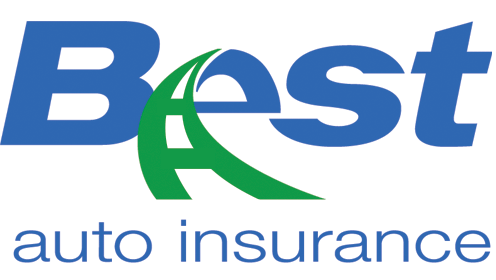Insuring a car is typically simple enough. You buy a vehicle, shop around for car insurance and get coverage for your car. But there are times when things get more complicated. For example, you may want to insure your partner’s or teen’s car, which is in their name and not yours.
So, can you insure a car you don’t own? If so, how? If not, what are the alternatives for car insurance? Follow along — we’ve got you covered.
KEY TAKEAWAYS
- You cannot usually get car insurance on a vehicle that is not in your name, but there are exceptions.
- Non-owner insurance is an option for people who don’t own a vehicle but want to be covered with liability coverage in case of accidents.
- If you are not a car owner but would like to be insured on it, it may be easier to get added as an additional insured on their auto insurance policy.
Can you insure a car you don’t own?
Most often, the answer is no, but this relies on the insurance company and its specific policies.
But first, let’s talk about ownership.
When it comes to car insurance, legal ownership isn’t about who paid for the car. The owner of the car is on the registration and title of the car. A standard auto insurance policy is only written in the name of the person who has legal ownership of the car. Insurance companies view this ownership as an insurable interest, a motivating factor in keeping the vehicle in good condition.
Along with that, many states prohibit a vehicle’s registration in a different name than is on the proof of insurance.
Therefore, you cannot usually get car insurance on a vehicle that is not in your name, but there are exceptions.

Adding a car to your insurance policy if it’s not in your name
So, when can you insure a vehicle that is not in your name? After all, it’s not a very common scenario. Some reasons why you might be inquiring about getting insurance on a vehicle you don’t own include:
- You’d like to add the vehicle owner’s name to your existing policy.
- You have a financial stake or insurable interest in the car.
- You’re related to and/or live in the same household as the vehicle owner.
- Someone is moving in with you, and you may share the vehicle.
In some of these scenarios, there are more feasible alternatives than trying to insure the car you don’t own. We will get into the alternatives next.
Though most major insurers will not sell you an insurance policy on a car that is not legally yours, some major insurers, like Progressive, say they will.
How to insure a car you don’t own
Insuring a car other than your own can be difficult, but there are a few ways that can help:
Share the same address with the car owner
If you live at the same address as a car owner, it’s easy to be added to their insurance policy. The vehicle owner just needs to contact their insurance company and tell them that they would like your name to be included in their auto insurance policy.
Adding your name to car owners auto insurance
Adding yourself to the title of a car can be difficult and expensive if you don’t own it. But to get insured you will have to show proof to the insurance company that you are dependent on this vehicle in order to get supplementary coverage from the insurer, but not all insurance companies offer these types of plans.
Adding vehicle owner to your policy
You may consider adding the vehicle owner’s name to your insurance policy. This way, you can make sure that it will be covered in case of any accidents or damage.
QuickTake
Alternatives to insuring a car you don’t own
If you have trouble convincing your insurance company to insure a car you don’t own, there are workarounds to consider:
Buy non-owner car insurance
Non-owner car insurance is car insurance for drivers who don’t own a car. If you plan on borrowing a car regularly, non-owner car insurance will provide liability coverage for any vehicle you drive. Liability insurance pays for damages you cause to third parties, which may be enough for your needs, but it won’t cover the vehicle against loss or damages if you’re at-fault in an accident.
recommend first seeing about being added as a driver to their policy.”
Non-owner car insurance acts secondary to the car owner’s insurance policy. And if you drive someone else’ car regularly, you can ask the owner to add you as a driver to their policy.
If you’re not the owner of the vehicle but want to make sure you have liability coverage to supplement whatever the owner of car has, non-owner insurance can be an option with affordable insurance rates.
Ask to get added to the car owner’s insurance policy
Instead of trying to buy car insurance for a car you don’t own, it may be easier to get added to the owner’s auto insurance policy instead. This scenario only works if the vehicle owner is your roommate or family member who lives with you. Most car insurance companies are more willing to add an additional driver to an insurance policy than to insure a car that’s not in your name.
Become a co-owner or owner on the title
Depending on your state, you may be able to get added as a co-owner on the vehicle’s registration. Once you’re on the title and registration, you’ll get a new title and be able to get an insurance policy on the vehicle.
As an alternative, consider asking the title bearer to transfer the vehicle ownership over to you. The titleholder must own the car outright or pay it off in full first. Many states allow the gifting of a vehicle, saving you sales tax. However, it’s best to double-check this method with an accountant. You may save on sales tax but end up subject to a federal gift tax on the car’s value.
Rely on permissive use
If you’re planning to use the car occasionally, you don’t need an insurance policy if the owner already insures it. Insurance policies give non-owners of vehicles permissive use, which means licensed drivers who have been given permission to use the vehicle every now and then are covered without being named on the auto insurance policy.
Can someone else insure my financed car?
Although someone else may be able to insure your financed car, the bank or lending institution is the primary lien holder. Any insurance checks or payouts would be paid to the financing company.
Can someone else register my car in their name?
Although someone else may be able to insure your financed car, the bank or lending institution is the primary lien It all depends on the state. Generally, someone else may be able to register your car in their name, but only if you give them permission. You may also add a co-owner to your vehicle registration, showing both your names on the title.








